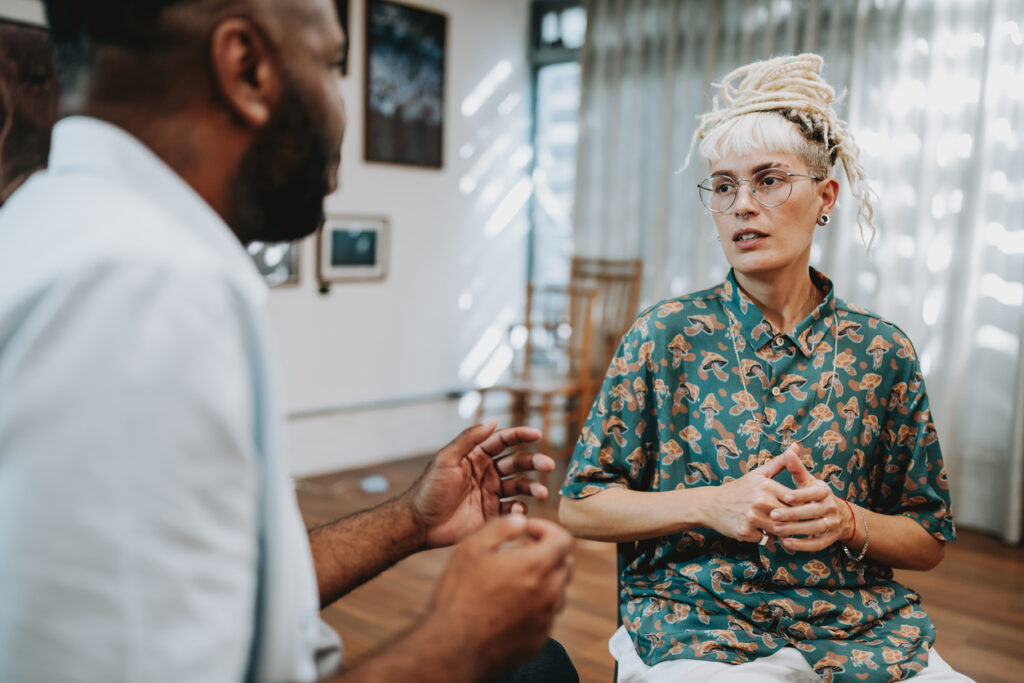Supporting LGBTQIA Mental Health: Why Affirming Therapy Matters

Mental health is a universal need, yet individuals from the LGBTQIA community often face unique challenges that require tailored care. With a broad spectrum of sexual orientations, gender identities, and lived experiences, it’s crucial that therapeutic approaches embrace diversity and foster understanding. Affirmative therapy, designed specifically to address LGBTIQQ experiences, stands as a beacon of support in creating a safe space where clients feel seen, heard, and valued.
The Importance of Affirming Therapy
Affirming therapy validates the identities and experiences of LGBTQIA individuals. By fostering an environment of acceptance, it helps clients feel comfortable discussing topics such as sexual orientations, race, ethnicity, and gender identities. Many LGBTQIA individuals face unique stressors, including discrimination, stigma, and familial rejection. Affirmative therapy empowers them to navigate these challenges, equipping them with coping strategies that promote resilience and well-being.
An affirming therapist recognizes the complex interplay of factors that shape each individual’s mental health. They understand the importance of addressing not only the psychological impact of societal pressures but also the unique intersections of identity that influence the client’s journey. This holistic approach helps clients develop a stronger sense of self-worth and confidence.
Facing Unique Challenges
The LGBTQIA community often encounters hurdles that extend beyond traditional mental health concerns. These include systemic discrimination, lack of representation, and limited access to supportive resources. For example, an individual’s race or ethnicity may intersect with their gender identity or sexual orientation, creating layered experiences of marginalization. Affirmative therapy helps clients navigate these complexities with understanding and compassion.
Support groups play a pivotal role in fostering community and connection among individuals with shared experiences. These groups create a safe space where clients feel empowered to share their stories without fear of judgment. Engaging with others who face similar challenges helps reduce feelings of isolation and strengthens the sense of belonging, which is essential for mental health.
The Role of Affirming Therapists
Affirming therapists go beyond simply tolerating differences; they actively celebrate them. By educating themselves about the nuances of LGBTIQQ affirming therapy and staying informed about current issues affecting the community, these professionals provide care that is both empathetic and effective. Affirming therapy involves actively addressing biases, challenging stereotypes, and prioritizing the client’s comfort and safety.
Creating an inclusive environment where diverse gender identities and sexual orientations are respected fosters trust between the therapist and client. This trust is crucial for effective therapy, as it allows clients to explore their feelings and challenges openly. For many LGBTQIA individuals, having a trusted affirming therapist is the first step toward healing and growth.
Building a Safe Space
A cornerstone of affirmative therapy is creating a safe space where clients feel valued and accepted. This involves cultivating an environment free of judgment and prejudice, where individuals can discuss their LGBTIQQ experiences openly. By addressing topics such as coping strategies and fostering self-acceptance, therapists help clients develop the tools they need to thrive.
Safe spaces extend beyond the therapy room. Inclusive practices in workplaces, schools, and communities can also contribute to the mental health of LGBTQIA individuals. By advocating for policies that support diversity and inclusion, therapists and allies can help create a broader culture of acceptance.
Conclusion
Supporting LGBTQIA mental health requires more than awareness; it demands action and advocacy. Affirming therapy offers a vital framework for addressing the unique challenges faced by individuals with diverse sexual orientations, gender identities, and intersecting identities. By providing a safe space, offering coping strategies, and celebrating the richness of LGBTIQQ experiences, affirming therapists empower their clients to lead fulfilling, authentic lives.
Through affirmative therapy and the establishment of support groups, society can continue to dismantle barriers and build a more inclusive world where all individuals, regardless of race, ethnicity, or identity, can access the mental health support they deserve.
